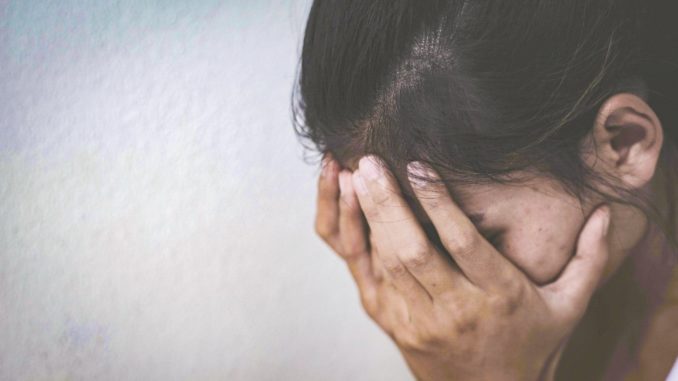
October is Respect Life Month, but it also is Domestic Violence Awareness month — a time set aside to focus on an issue that goes against the very sanctity and dignity of human life.
Domestic violence is an ongoing problem in South Carolina. The state has consistently ranked in the top 10 of states with the most women murdered by men. This year, it was fifth in the nation
with a rate of 2.01 per 1,000, according to a report released by the Annual Violence Policy Center.
This year’s statistics are part of an ongoing grim trend in South Carolina. The state ranked No. 1 in the country for women killed by men in 2011, and has remained in the top 10 since then.
Helping women escape abusive and violent relationships is always a challenge, but it can be especially difficult for Catholic women, who mistakenly believe that Church teachings say they must remain in a marriage no matter what, said Sharon O’Brien, director of Catholics for Family Peace at the Catholic University of America in Washington, D.C. The program focuses on helping people respond to domestic abuse with Gospel values.
“Catholic teaching is clear that abuse and violence have no place in marriage,” O’Brien said. “Regardless of what your grandparents or parents accepted in the past, there is no reason to keep yourself in that kind of situation. Catholic teaching does state that sacramental marriage lasts forever, but true sacramental marriages are based on safety, love and respect.”
“The Church is clear when it teaches that abuse is wrong because it denies the dignity of the person who is being abused,” she continued.
O’Brien cites Canon 1153 in the Code of Canon Law which states that a spouse has reason to leave a marriage when their partner presents “a grave danger of soul and body to the other or to the children.”
“Leaving a violent situation is a matter of self-defense — no one is obligated to stay in an unsafe situation,” she said.
One of the main goals of Catholics for Family Peace is to teach both clergy and laity how to respond to people in their community who are victims of domestic violence.
She said the most important resource for those in abusive relationships is a friend, coworker, relative or member of the clergy who they can trust. She encourages everyone to learn as much as they can about domestic violence so they will know how to respond if a person comes to them for help.
Parishes can help by posting the number of the National Domestic Violence Hotline in prominent places and by donating to or collecting supplies for local shelters and programs that help domestic violence victims.
Learn more & how to help
- U.S. Conference of Catholic Bishops: http://www.usccb.org/issues-and-action/marriage-and-family/marriage/domestic-violence/when-i-call-for-help.cfm
- Catholics for Family Peace: www.catholicsforfamilypeace.org
- S.C. Coalition Against Domestic Violence and Sexual Assault: www.sccadvasa.org
- National Domestic Violence Hotline: 1-800-799-SAFE (7233).

